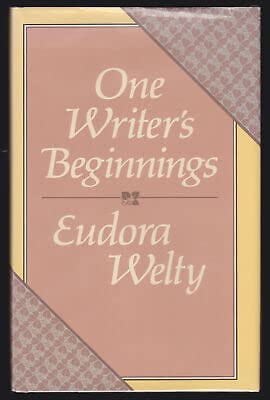What do you think?
Rate this book


233 pages, Hardcover
First published January 1, 1983
It is our inward journey that leads us through time – forward or back, seldom in a straight line, most often spiraling. Each of us is moving, changing, with respect to others. As we discover, we remember; remembering, we discover; and most intensely do we experience this when our separate journeys converge. Our living experience at those meeting points is one of the charged dramatic fields of fiction.
Long before I wrote stories, I listened for stories. Listening for them is something more acute than listening to them. I suppose it’s an early form of participation in what goes on. Listening children know stories are there. When their elders sit and begin, children are just waiting and hoping for one to come out, like a mouse from its hole.
“I am a writer who came from a sheltered life. A sheltered life can be a daring life as well. For all serious daring starts from within.”